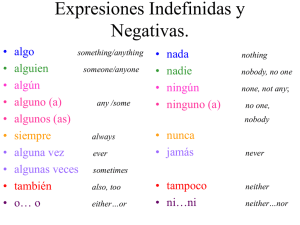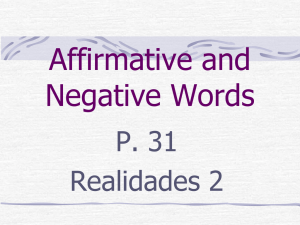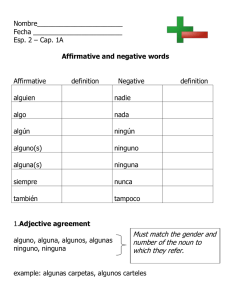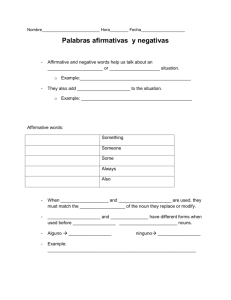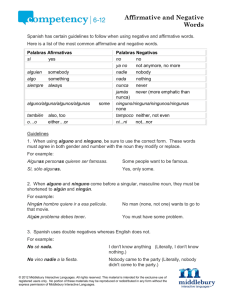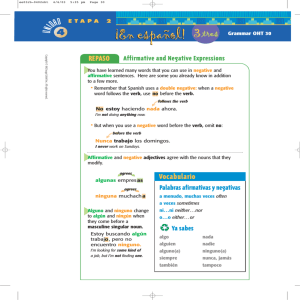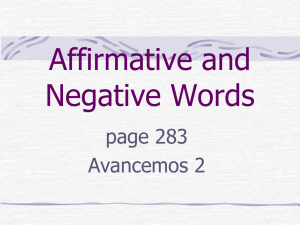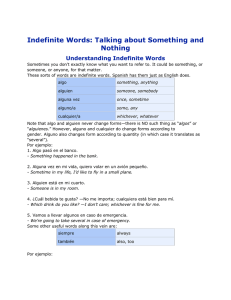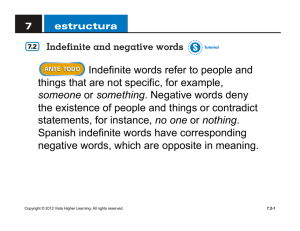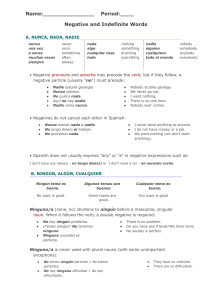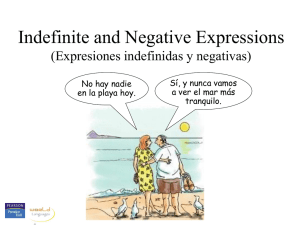Bellwork
advertisement
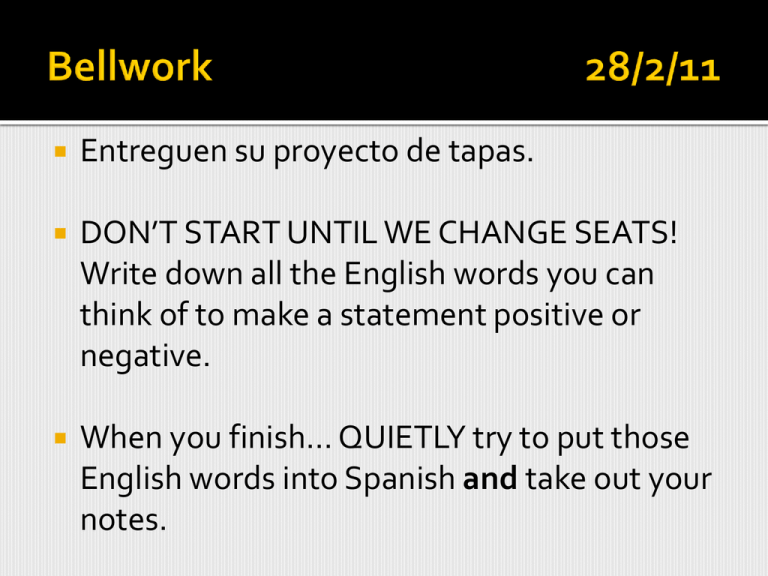
Entreguen su proyecto de tapas. DON’T START UNTIL WE CHANGE SEATS! Write down all the English words you can think of to make a statement positive or negative. When you finish… QUIETLY try to put those English words into Spanish and take out your notes. Affirmative Algo-something Alguien-someone Algún/alguno(a)some O…o- either…or Siempre- always También-also Negative Nada-nothing Nadie-no one Ningún/ninguno(a)none, not any Ni…ni- neither…nor Nunca-never Tampoco-neither, either Alguno and ninguno are DIFFERENT when they come before MASCULINE SINGULAR nouns. Alguno becomes algún ¿Quieres algún filete?~ Do you want some steak? Ninguno becomes ningún No, no quiero ningún plato con carne. ~I don’t want any dish with meat. What is a Double negative? Can we have it in English? ▪ NO Can we have it in Spanish? ▪ YES A double negative is required in Spanish when a no comes before the verb. The indefinite words that follow no must be negative. Examples: No veo nada.- I don’t see anything. It would directly translate to I don’t see nothing. Illegal in English BUT Perfect in Spanish! Think about the words alguien (someone) or nadie (no one). What do these two have in common? They deal with PEOPLE therefore we need the personal A. ¿Conoces a alguien de España? Do you know someone from Spain? No, no conozco a nadie de España. No I don’t know anyone from Spain.
